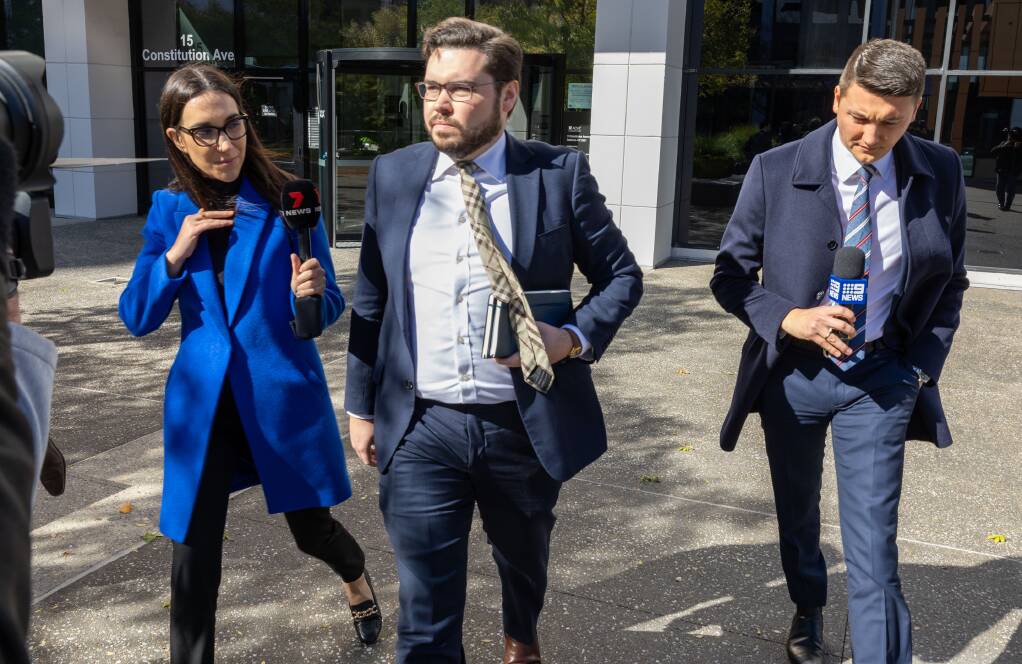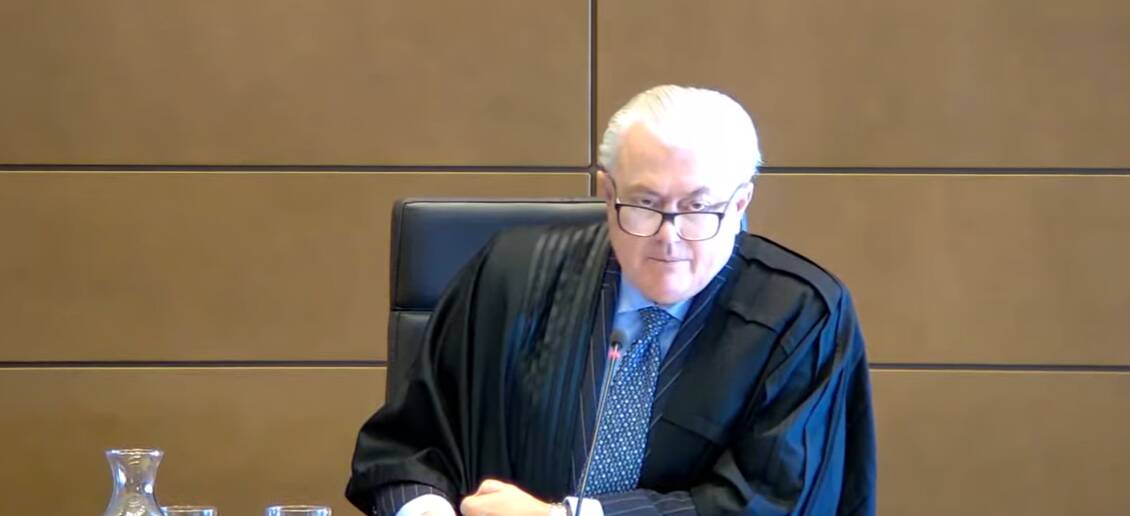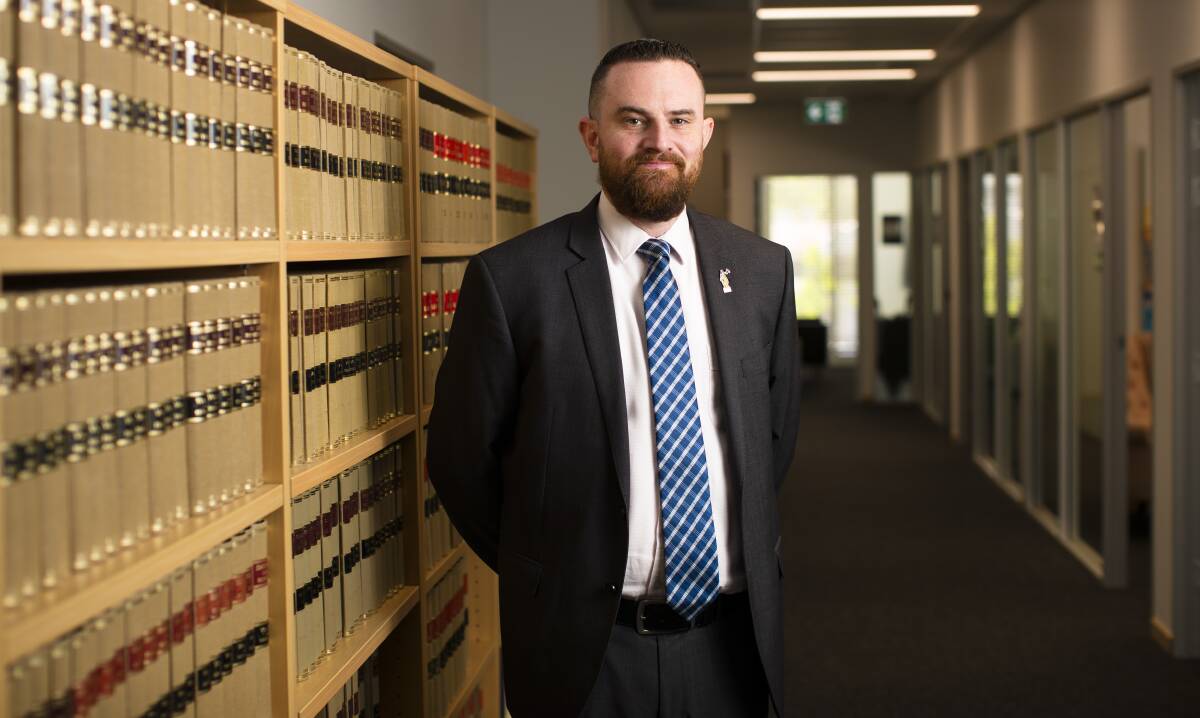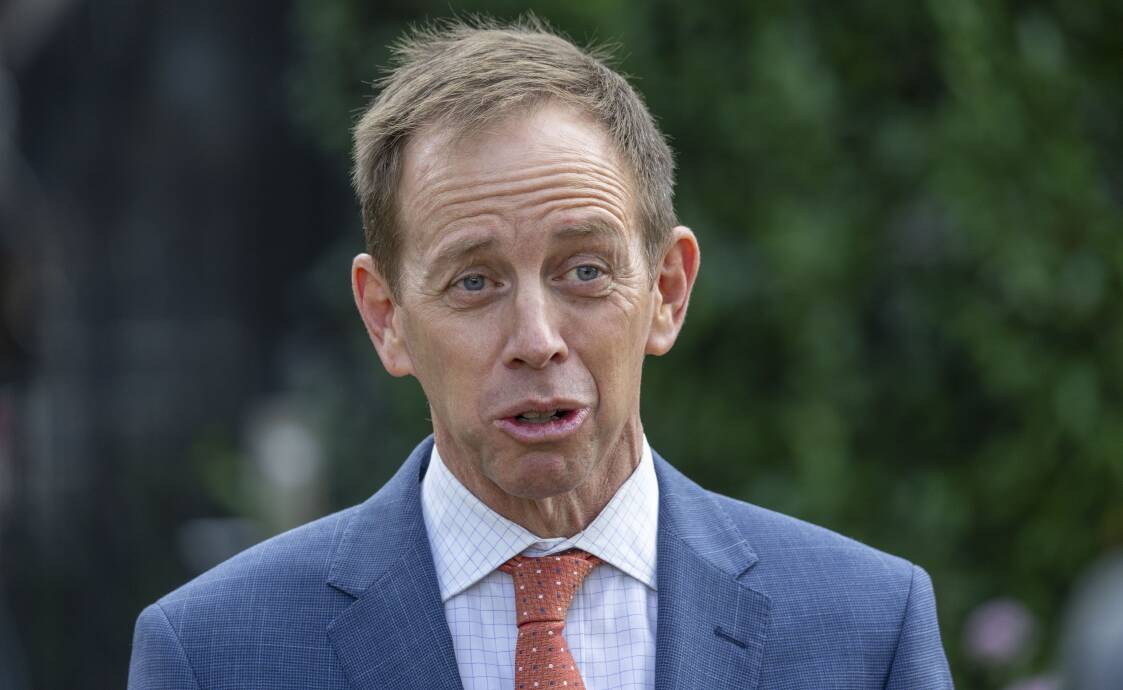Could Bruce Lehrmann face contempt of court action in the ACT for the alleged leaking of confidential court documents?
That's the burning question following a scrupulous defamation judgment from the Federal Court's Justice Michael Lee earlier this week.
The judge found, on the civil balance of probabilities, Mr Lehrmann raped his former Liberal staffer colleague Brittany Higgins inside Parliament House in March 2019.
Justice Lee also made findings about Mr Lehrmann breaching a legal obligation in his dealings with Seven Network last year.
So, what was the alleged breach? Could Mr Lehrmann now be in trouble in the territory? And who can actually initiate contempt proceedings?
The alleged breach
Mr Lehrmann is accused of breaching an implied court undertaking known as the Harman principle or the Hearne v Street obligation.
"A party who receives documents or information in proceedings from a person compelled to provide them can only use those documents or information for the purpose of the proceedings," University of Sydney Professor David Rolph said.

The professor of law and expert on contempt said parties need leave from the court to use such documents, or any other information provided, outside proceedings.
On Monday, Justice Lee found it was an "inescapable conclusion" Mr Lehrmann provided a Spotlight producer with access to evidence from his aborted ACT criminal trial.
"[Mr Lehrmann's] representations and evidence to the contrary were false to his knowledge on a serious matter, and this conclusion fortifies my assessment as to his general credit," he said.
The judge deemed it unnecessary to make findings about further evidence allegedly leaked to Seven, including thousands of text messages between Ms Higgins and ex-partner Ben Dillaway.
Mr Lehrmann unsuccessfully sued Network Ten and journalist Lisa Wilkinson for defamation over a 2021 The Project broadcast airing Ms Higgins' rape allegation.
"No, I just gave the interview," Mr Lehrmann responded last year during a month-long civil trial when asked if he had given Seven any confidential documents as part of a media exclusivity deal.

Seven has never revealed its source but one of its former producers, Taylor Auerbach, claimed Mr Lehrmann made copies of confidential documents at the television network's Sydney office in March last year.
Following the Spotlight program airing last June, lawyers for Ten asked Mr Lehrmann's solicitors for a please explain regarding the alleged breach, citing contempt of court.
"Our client is well aware of his obligations pursuant to the decision in Harman, and has at all times complied with those obligations," Mark O'Brien Legal, representing Mr Lehrmann, responded.
Who can begin contempt proceedings?
On Monday, Justice Lee made it clear he had enough on his plate when it came to Mr Lehrmann.
"As I explained at the trial, I am not some sort of roving law enforcement official, and if any issue concerning an alleged breach of the Hearne v Street obligation is to be pursued in relation to anyone, it will not be by me, and it will not be by this court," he said.
His role was limited only to deciding if Mr Lehrmann made false representations on the topic.
"I am comfortably satisfied he did," the judge said.
In the ACT, proceedings must be started by making an application in the court the contempt is alleged to have occurred in.
"In this case, the Supreme Court of the ACT," Professor Rolph said.
The professor said a breach of the Harman undertaking is classified as a civil contempt and can only be initiated by a party to the proceedings.
This would include counsel on both sides of Mr Lehrmann's criminal proceedings but not parties like Chief Justice Lucy McCallum, who presided over the trial, or the Attorney-General.

"Only the ACT DPP as a prosecutor would have standing to because the allegation would be that Mr Lehrmann was the person who committed the contempt," Professor Rolph said.
ACT court procedure legislation sets out the process of contempt proceedings but is unclear about who can initiate them or the distinction between civil and criminal contempt.
Acting ACT Director of Public Prosecutions Anthony Williamson SC declined to comment on whether the office is considering contempt action against Mr Lehrmann.
Notably, territory prosecutors would need to investigate and adduce their own evidence, and could not rely on what was heard during Mr Lehrmann's civil trial or Justice Lee's judgment.
"You couldn't simply transpose the findings from the defamation case into a contempt proceeding in a different court," Professor Rolph said.

This masthead asked ACT Attorney-General Shane Rattenbury if the government would encourage an investigation into the alleged breach. He did not answer, but a Justice and Community Safety Directorate spokesperson provided a general statement.
"Under the Director of Public Prosecutions Act 1990, a decision to prosecute a charge of contempt of court lies with the ACT Director of Public Prosecutions, who is an independent statutory office holder," the spokesperson said.
The spokesperson said laws pertaining to the Harman undertaking in the territory were in line with other jurisdictions.
Could Lehrmann face contempt action?
The short answer is yes. But whether he will remains to be seen.
Justice Lee only had to meet the civil standard of proof, being the balance of probabilities, to make his finding about Mr Lehrmann's involvement in the leak to Seven.
"All contempts have to be proved beyond a reasonable doubt," Professor Rolph said.
The question could be one for the territory's incoming director Victoria Engel SC, who is set to take up the position next month.
Neither Mr Rattenbury nor ACT Victims of Crime Commissioner Heidi Yates, who is on leave, responded to questions about the message sent to sexual assault complainants if the alleged breach is not investigated.







